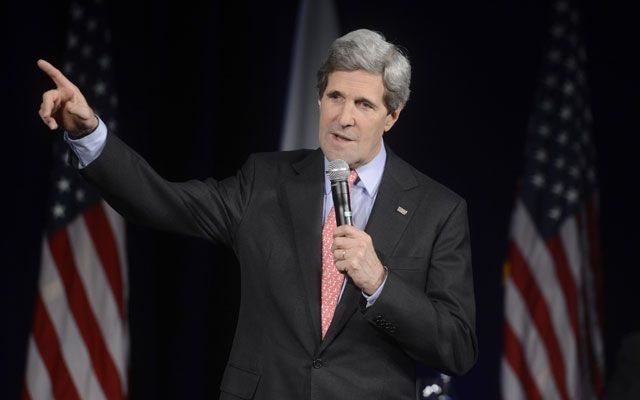Secretary of State Kerry Bypasses Israel in First Middle East Trip
James Phillips /
Israel was a conspicuous omission when the itinerary of Secretary of State John Kerry’s first trip overseas to Europe and the Middle East was announced this week. Although Kerry will visit Egypt, Qatar, Saudi Arabia, Turkey, and United Arab Emirates, he will not be visiting America’s most important ally in the Middle East.
State Department officials maintain that the reason for avoiding Israel was that Prime Minister Benjamin Netanyahu was still involved in negotiations to form a coalition government after Israel’s elections last month. But Netanyahu is sure to retain office in those negotiations so it is unclear why Jerusalem is being sidestepped.
In fact, Egypt’s President Mohamed Morsi is embroiled in a far more destabilizing power struggle with Egypt’s judiciary and a wide spectrum of liberal, secular, Christian, and leftist opposition groups. Moreover, Kerry apparently has no reservations about appearing to support Morsi, denounced as Egypt’s new Pharaoh, in advance of Egypt’s upcoming parliamentary elections.
This should have been a particularly sensitive issue, given that Hillary Clinton was roundly denounced by democratic opposition leaders during a visit last July for appearing to favor Morsi’s Muslim Brotherhood in Egypt’s ongoing power struggle. Earlier this month, the Obama Administration was denounced by an Egyptian human rights activist for giving “political cover” to the Morsi regime as it cracks down on the opposition.
Secretary of State Kerry must be careful to avoid making the same mistakes that the Obama Administration made in its first term. Not only did the Administration distance itself from Israel in the course of rushing to failure in brokering stillborn peace negotiations with Palestinians, but it bent over backwards to warmly embrace Egypt’s new Islamist-dominated government.
Kerry’s itinerary for his upcoming trip suggests that the new Secretary of State may be pursuing the same failed approach.
See also: The Arab Spring Descends into Islamist Winter: Implications for U.S. Policy

